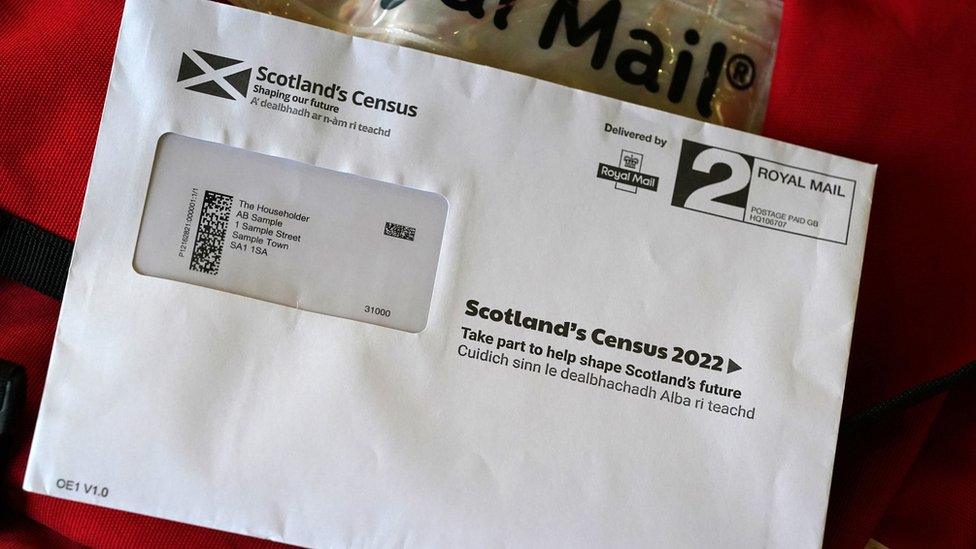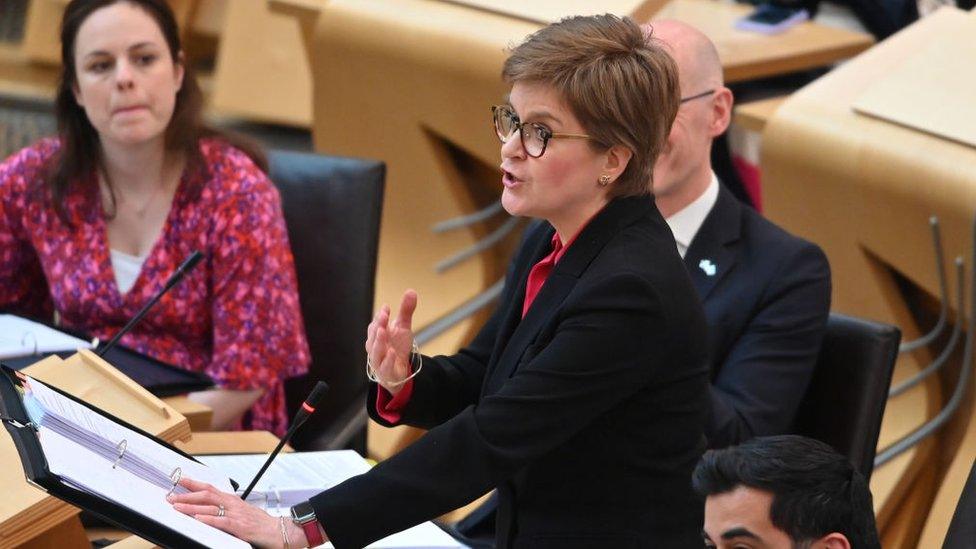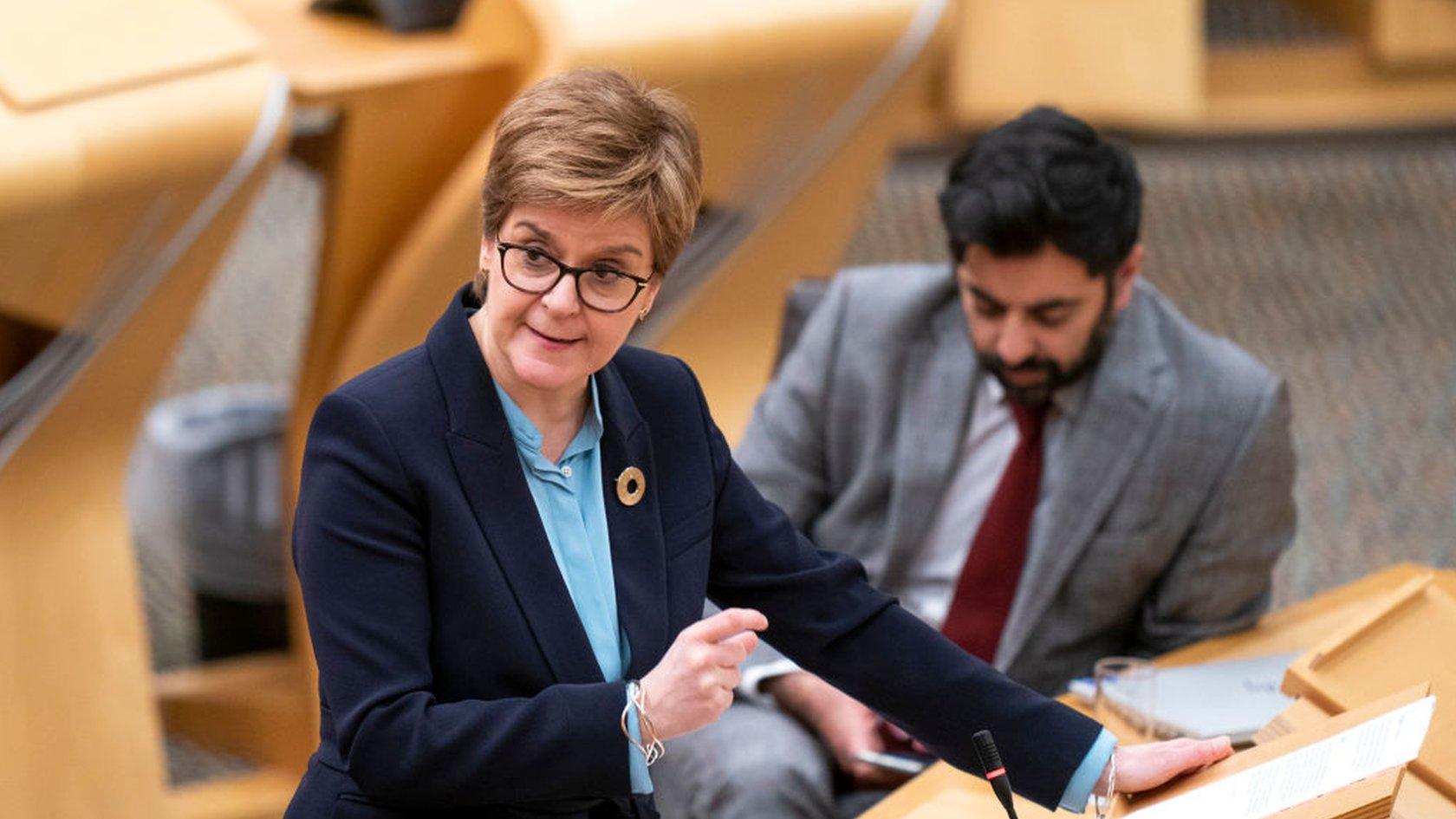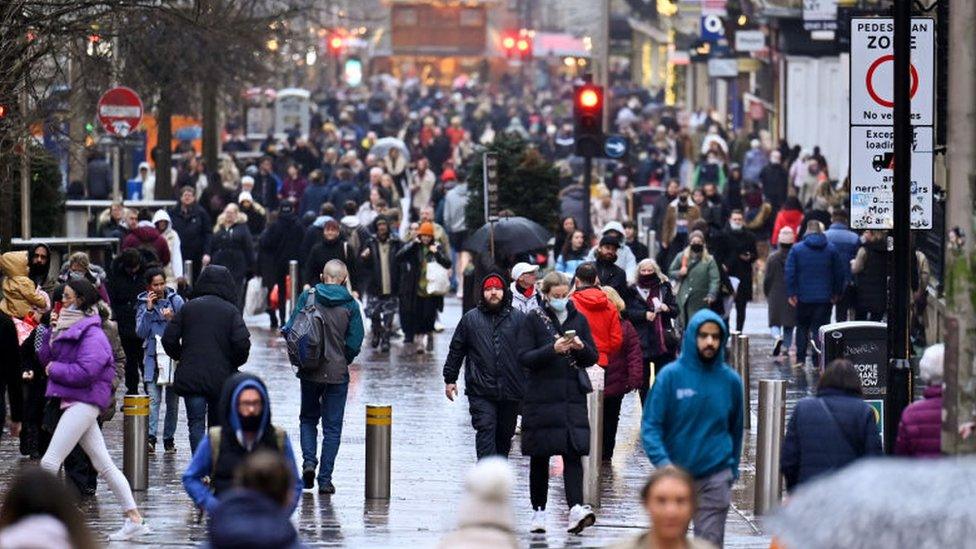Sturgeon: Lessons will be learned from census row
- Published

Nicola Sturgeon has insisted that Scotland's census will produce credible data despite a lower number of people filling it out than had been targeted.
The survey was extended by a month to attract extra submissions, but as of Wednesday the response rate was 86.9% - far below the original goal of 94%.
It has led to calls from some experts for an inquiry into what went wrong.
Ms Sturgeon said lessons would be learned, but added that "a high-quality census data set" would be produced.
Opposition parties said there should be "soul-searching" in government over the "shambolic" process.
The census is meant to take place every 10 years, and produces data used by the government and other agencies to plan public services.
This was Scotland's first principally digital census, with more than two million households filling it in online and 250,000 returning a paper copy.
Scotland's census was delayed by a year in 2021 due to the Covid-19 pandemic - despite the survey going ahead as planned in England and Wales, with a response rate of 97%.
The population survey was supposed to be complete by the beginning of May, but with return rates sitting at 77% ministers opted to extend it by a month.
This added £10m to the cost of the exercise, bringing it to a total of £148m.
At Holyrood, the first minister was asked if the data collected would be credible
She replied that it would, and that the National Records of Scotland (NRS) was confident it would provide "credible, high-quality output".
Ms Sturgeon said the NRS would produce "a high-quality census data set" which could be used to inform future service planning.
She added that the government would review the experience and "ensure that any lessons that require to be learned are learned".

Door-to-door surveys and the public awareness campaign for the census ended on 31 May - although people will still be able to send in responses online, external and through the post until 12 June.
NRS teams are now moving on to the census "coverage survey", which helps refine and fill gaps in the data collected in order to produce a representative picture of the population.
Ms Sturgeon said this would involve interviews with about 1.5% of the population, or 50,000 households.
She said this would address concerns about people in more deprived communities, where response rates were lower, losing out as a result.
Census expert Professor David Martin - a deputy director of the UK Data Service and Southampton University - said this was a normal part of the process, but that extra work may be needed to make up for the lower return rate.
He said: "No census captures everybody. What happens next is that NRS will have to work very hard with their census coverage survey to understand the characteristics of the 14% or so of forms they didn't get.
"The final count is based on a careful statistical adjustment of what we've got from the count - what matters most is that the final numbers are accurate.
"The downside of a small count is that you might still have a perfect number, but you might be slightly less confident about it because we haven't been able to speak to and get a response from every person.
"That's what the coverage survey and the subsequent quality assurance is designed to do."


The census is over - let the coverage survey begin!
The largest data-gathering exercise in the country is neatly followed by the second-largest data-gathering exercise, in a bid to draw up the most comprehensive picture of the population possible.
Census data is useful for all kinds of things - from local issues like a bus route or the location of a new school, all the way up to the funding of local authorities and designs for a National Care Service.
This is part of the reason why there is such a row over this year's survey; it really is important to have that comprehensive picture for future planning.
That's why ministers judged it was worth spending an extra £10m for another month of collection, and that's why there is disappointment that the final figure is still well short of target.
The questions to the public may be coming to an end, but politicians will face plenty more about what went wrong.

Opposition parties branded the census "shambolic".
Labour's Sarah Boyack, raising the issue at first minister's questions, said "it was "farcical to see Nicola Sturgeon insist everything is going to plan", calling for a "genuinely credible plan to fix the mess the SNP have made of this".
The Scottish Conservatives said "the whole process has descended into chaos".
MSP Donald Cameron said the Scottish government had been warned of "the perils of not running the census in sync with the rest of the UK", but "had to be different and do their own thing, squandering the benefits of the UK-wide publicity drive".
Liberal Democrat MSP Willie Rennie said there would "need to be some soul-searching over how this was allowed to go so wrong".
Related topics
- Published1 June 2022

- Published31 May 2022
